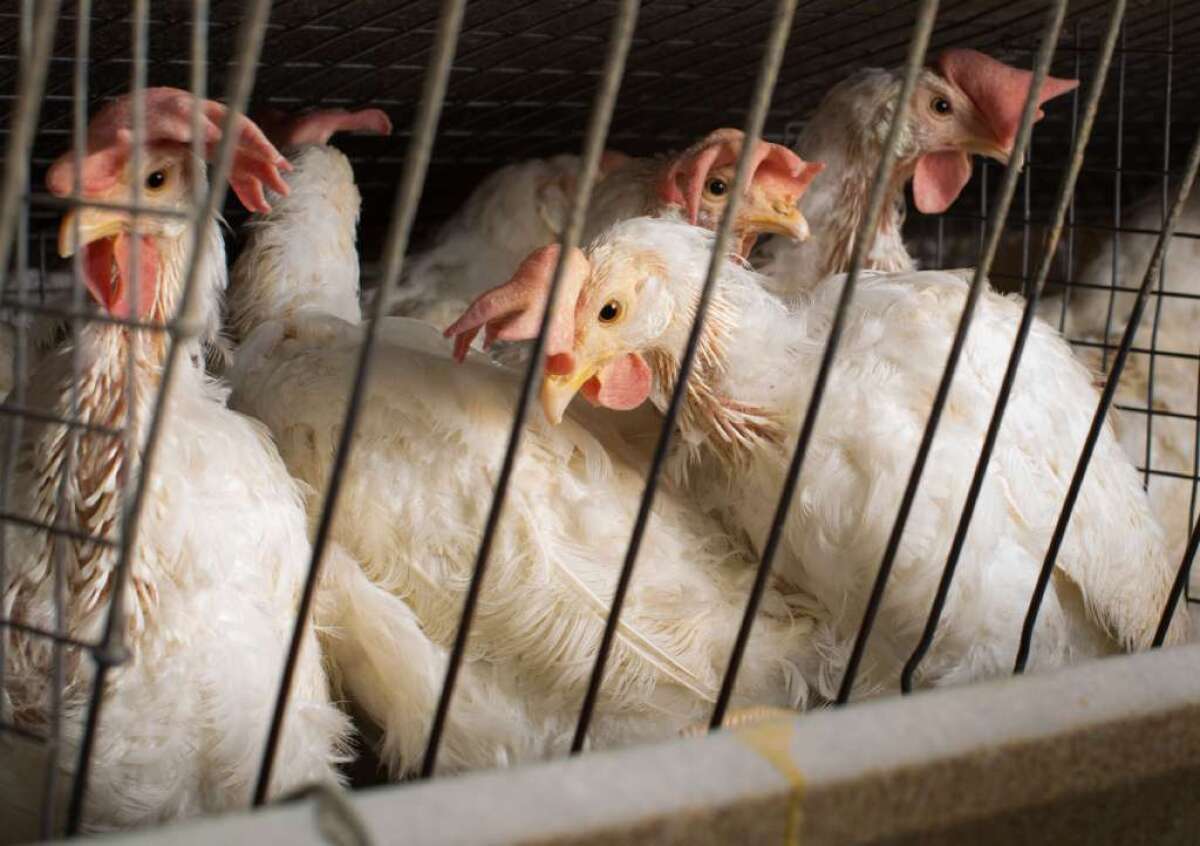Which should come first, healthier chickens or cheaper eggs?

Egg Industry magazine predicted that 2015 will be “the year of the lawsuit” in the U.S. egg industry — and it was referring specifically to California. But the court battles have already begun. On Feb. 3, Missouri filed a federal lawsuit alleging that California regulations infringe on Missouri’s sovereignty.
The two California laws at issue go into effect Jan. 1, 2015. The first is Proposition 2, a 2008 initiative passed overwhelmingly by California voters, which requires cages large enough for egg-laying hens to stand and spread their wings. The second law is legislation passed two years later requiring that all eggs sold in California, including those from out of state, meet the state standards.
Currently, about 95% of egg-laying hens in this country are confined to so-called barren battery cages, with a standard 18-by-20-inch wire cage typically holding five hens. That’s not enough room for them to spread their wings, or to do much of anything else.
These cages are horrible for animals. Their bodies deteriorate from lack of movement, just as a human’s would if she were forced to sit in one place for almost two years. Many of the animals suffer skeletal weakness and deterioration that can paralyze them, causing them to die in their cages from dehydration, an occurrence so common the industry has a name for it: “cage layer fatigue.”
Chickens have been found to perform well on tests of cognitive and behavioral sophistication. But in these small cages, they can do nothing stimulating to them. My organization operates farm animal shelters in the Los Angeles and Sacramento areas. The birds that have come to us from battery cage farms appear to suffer from the avian version of post-traumatic stress disorder; they are listless and completely antisocial, while chickens normally are extremely curious, active and quick to make friends (that’s what a “pecking order” is all about).
The ban on the battery cages has been subjected to years of legal challenge in state and federal courts. Critics of the ban continue to argue that the law is unconstitutionally vague because it does not spell out the exact dimensions for allowable cages. But state and federal courts have ruled against precisely this argument.
For example, the U.S. District Court for the Central District of California in 2012 ruled that the law offers “more than a reasonable opportunity to know what is prohibited and provides explicit and objective standards to prevent discriminatory enforcement.”
The Missouri lawsuit filed last week challenges the second law, which bans the sale of eggs from caged hens from outside California. Missouri Atty. Gen. Chris Koster contends that the sales ban violates the interstate commerce clause of the Constitution.
He’s wrong.
In fact, Koster’s theory was already rejected by a district court in California, and then rejected again by a unanimous panel of the U.S. 9th Circuit Court of Appeals. That latter case, which concluded six months ago, involved California’s ban on liver pate from force-fed ducks. Producers from New York and Canada made precisely the argument Koster is making, and the court rejected it, citing three Supreme Court cases and multiple circuit court cases.
The very circuit court that will hear Koster’s claim held that where a state bans the same procedure for in-state and out-of-state production — as California’s cage law does — “it is not discriminatory.”
Battery cages, the cruelest of all factory farming systems, are illegal across the European Union and have been condemned by the Pew Commission on Industrial Farm Animal Production. California should be celebrated, not sued, for taking a stand against these inhumane practices.
Bruce Friedrich is senior policy director for Farm Sanctuary, a national organization. Farm Sanctuary was a principal supporter of California’s Proposition 2.
More to Read
Sign up for Essential California
The most important California stories and recommendations in your inbox every morning.
You may occasionally receive promotional content from the Los Angeles Times.










